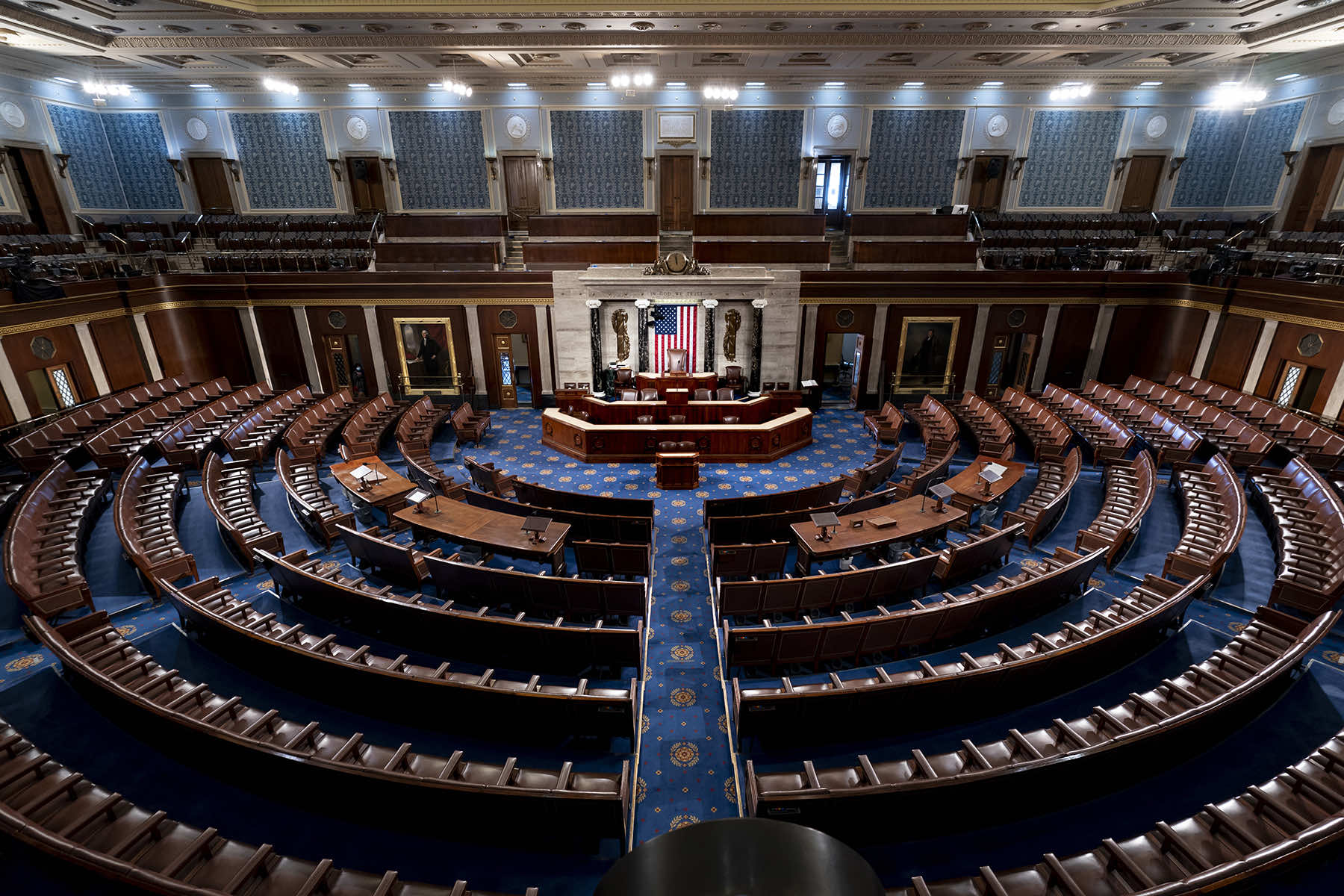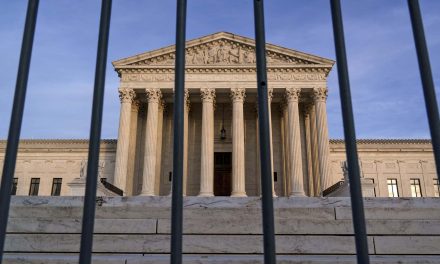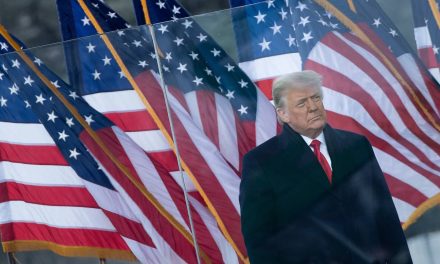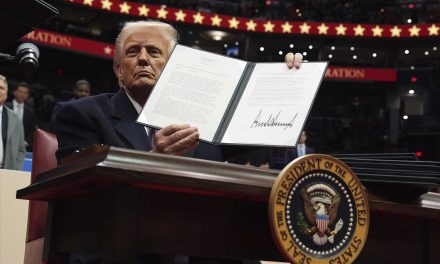
“If the Congress maintains these principles, the voters, putting patriotism ahead of pocketbooks, will give you their applause. In the future days, which we seek to make secure, we look forward to a world founded upon four essential human freedoms. The first is freedom of speech and expression – everywhere in the world. The second is freedom of every person to worship God in his own way – everywhere in the world. The third is freedom from want – which, translated into world terms, means economic understandings which will secure to every nation a healthy peacetime life for its inhabitants – everywhere in the world. The fourth is freedom from fear – which, translated into world terms, means a world-wide reduction of armaments to such a point and in such a thorough fashion that no nation will be in a position to commit an act of physical aggression against any neighbor – anywhere in the world.” – President Franklin Roosevelt, 1941
Two years ago, rioters stormed the U.S. Capitol on January 6 to stop the counting of electoral ballots that would put a Democrat in the White House. There was no doubt Joe Biden had won. His majority in the popular vote was more than 7 million and he won the electoral college by 306 votes to 232, the same margin that the incumbent Republican had called a “landslide” four years earlier when it favored him.
But supporters of that incumbent, Donald Trump, believed that Democrats could not possibly have won fairly and that if they had, it simply meant their voters were illegitimate. Their worldview had its roots in opposition to the New Deal of the 1930s when Democrats, led by President Franklin Delano Roosevelt, created a new kind of government in the United States, one in which the government worked to level the playing field between workers and employers and to provide a basic social safety net. Their new government included — imperfectly, but included — Black and Brown Americans and women. And it paid for the new programs with higher taxes on the wealthy.
When the new system shored up the economy, preserved democracy, and enabled the U.S. to help destroy European fascism, most Americans — Republicans as well as Democrats — supported the new system. Over time, they expanded it, and they also began to use the government to protect civil rights. The shared belief in this active government became known as the “liberal consensus” and was so popular that most Americans never imagined it might be dismantled. Social Security, for example, the Voting Rights Act, and the Environmental Protection Agency were all simply part of the air we breathed.
But from the start, those who hated the New Deal argued that it was essentially socialism because it took money from wealthy people and redistributed it through government programs to poorer Americans, especially Black people, people of color, and women. They warned white men that they were losing control of the country as they were being outvoted by lazy minorities and demanding women.
Gradually, those people who wanted to go back to the world of the 1920s took over the Republican Party. They purged it of those Republicans who believed in the liberal consensus, calling them “RINOs,” or Republicans in name only, even though it was Republicans who had put in place many of the crucial pieces of the liberal consensus, including the 1964 Civil Rights Act.
As the old racist wing of the Democratic Party, those who hated civil rights laws, swung to the Republicans, the Democrats increasingly became the party of minorities and women, and they defended the laws that had made the government more responsive to the needs of all Americans. As they did so, Republicans, determined to destroy the liberal consensus, turned the generic word “liberal” into something close to “communist,” which actually refers to someone who believes the government should take over the means of production.
They worked to convince voters that Democrats were leftists using the government to steal from hardworking white men, and warned that letting them have a say in the government would destroy the country. When voters still elected Democrats, Republicans started to manipulate the electoral system, restricting the vote and gerrymandering districts. After 1993, when Democrats made it easier for people to vote by enabling them to register at their local Department of Motor Vehicles and other government offices, Republicans began to insist — without any evidence — that Democrats won only because they cheated.
The attack on the U.S. Capitol was the logical outcome of this rhetoric. The rioters believed they were saving the country from what Trump called “emboldened radical-left Democrats” who had stolen the election. They believed they were patriots defending the country and the Constitution from Democrats, whose policies, Trump told them, “chipped away our jobs, weakened our military, threw open our borders, and put America last.” Biden would be an “illegitimate president,” “voted on by a bunch of stupid people.” “[Y]ou’ll never take back our country with weakness,” Trump told them. “You have to show strength and you have to be strong…. We fight like hell. And if you don’t fight like hell, you’re not going to have a country anymore.”
The rioters did not act alone. They were aided and encouraged by radicalized Republican leaders who had bought into the idea that the liberal consensus must be destroyed. Late on the night of January 6, 2021, after the riot, 147 Republican members of Congress voted to contest the slates of electors, reinforcing the idea that the election was fraudulent, although they knew as well as anyone that election officials, judges, and even Trump’s own campaign and White House staff had dismissed those claims.
After the insurrection, Republican leaders — including House minority leader Kevin McCarthy of California — initially condemned those who participated in it, but quickly came around to protect those who had simply taken their own ideology to its logical extreme.
And now, two years later, voter suppression and gerrymandering have enabled their voters to give those same people control of the House of Representatives, where their quest to dismantle the liberal consensus has been on display. Twenty of the most extreme Republicans refused to back McCarthy for House speaker until he gave them enough power essentially to make up a third bloc in the House. McCarthy could easily have reached out to the Democrats rather than cave to the extremist right, but he refused to compromise the quest to get rid of the very legislation the Democrats — and most Americans — want.
January 6, 2023 also saw the number of House roll call votes for speaker rack up to an astonishing 14, as McCarthy gave the extremists more and more power. By midnight, after the 14th failed vote had led Mike Rogers of North Carolina to lunge at extremist ringleader Matt Gaetz of Florida, it was clear McCarthy’s bargaining would win him the seat he so badly wanted in a 15th ballot early the next day. Scott Perry (R-PA), who was a key figure in the attempt to overturn the 2020 presidential election, told CNN’s Manu Raju that among the many promises McCarthy made to get them on board was that he would not agree to raise the national debt limit without significant concessions.
The extremists wanted this control because they seem to believe that if the U.S. stops funding the government, the programs they hate will die. To kill off the government built by the liberal consensus, they are threatening to do as Trump has advocated: take the government into default.
That is, a few extremists are willing to take our government hostage to get their way, just as extremists did on January 6, 2021.
On that day the rioters attacked law enforcement officers, hunted down elected officials, and smeared feces in the building that symbolizes self-government in order to overturn an election and overthrow our right to choose our leaders, the principle that sits at the heart of democracy, and they did it believing that they were the ones defending America. “We have overwhelming pride in this great country,” Trump told them. “Together, we are determined to defend and preserve government of the people, by the people, and for the people.”
But they were not the ones defending democracy that day. Those defending democracy were the law enforcement officers who held back the mob even at the cost of their health and even their lives, people like Daniel Hodges, Michael Fanone, Harry Dunn, Caroline Edwards, Aquilino Gonell, Eugene Goodman, Howard Liebengood, Jeffrey Smith, Billy Evans, and Brian D. Sicknick.
Those defending democracy were the election workers who protected our system even at the cost of their jobs, their safety, and their peace of mind, people like Ruby Freeman, Shaye Moss, and Albert Schmidt. They were elected officials who refused to cave to pressure to throw the election, people like Jocelyn Benson and Rusty Bowers.
When Biden awarded these fifteen people the Presidential Citizens Medal on January 6, he reminded the audience that on this day in 1941, FDR delivered the famous “Four Freedoms” speech.
In that speech, FDR told the country that “The nation takes … much strength from the things which have been done to make its people conscious of their individual stake in the preservation of democratic life in America. Those things have toughened the fiber of our people, have renewed their faith and strengthened their devotion to the institutions we make ready to protect.”
J. Scott Applewhite (AP)
Letters from an Аmerican is a daily email newsletter written by Heather Cox Richardson, about the history behind today’s politics














